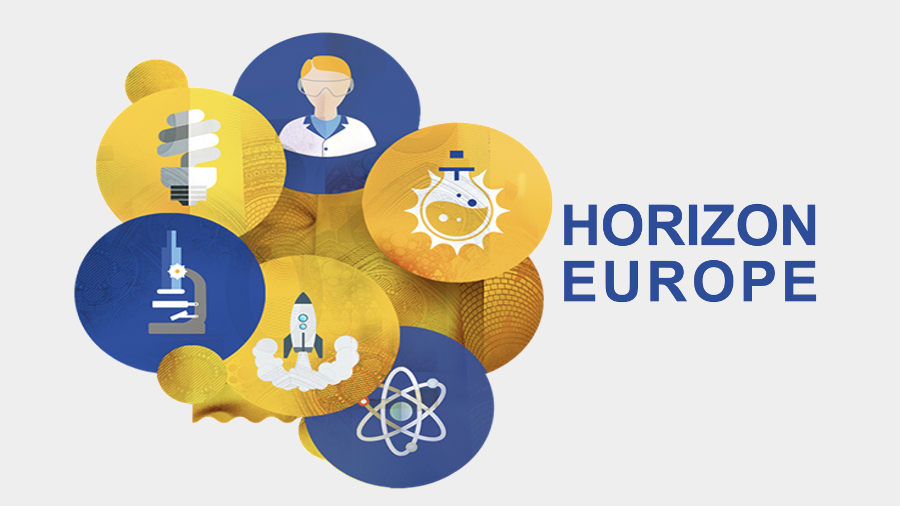Two new MSCA-Postdoctoral Fellowships projects: Pachamama and Nearcoast
ICTA-UAB has been awarded two MSCA-Postdoctoral Fellowships (PF) thanks to the MSCA-PF-2021 call under the European Commission's Horizon Europe project.

These projects last from two to three years and are awarded to experimental researchers as a way for them to develop their research project and improve their training. The projects are:
PACHAMAMA
(Paleodietary analyses of the first Andean cities: high-resolution assessment to macronutrients using a multiproxy approach)
This project is directed by PI Dr André Colonese from the Tradition research group at the Institute for Environmental Science and Technology (ICTA-UAB) and the Department of Prehistory, and the beneficiary of the fellowship is Dr Luis Pezo-Lanfranco. The project will be developed at the Institute for Environmental Science and Technology (ICTA-UAB), and will last two years.
The socio-ecological circumstances that underpinned the rise of the earliest urban centers in the Americas are some of the most intriguing and unclear aspects of New World archaeology. In particular, the emergence of Andean cities 5000 years ago has been the subject of contentious debates. On one hand, the Maritime Foundations of Andean Civilization have challenged the conventional assumption that agriculture was a pre-condition for early city development, and on the other, recent archaeological investigations have reenergized these debates by demonstrating that plant management and agriculture were developed in the region before the rise of complex societies and urban centers. Uncertainties remain regarding the proportional contributions of plants, fish and terrestrial animals to individual diet, and their potential roles in sustaining early sedentary and stratified urban populations engaged in monumental architecture.
PACHAMAMA will employ a suite of molecular techniques to unlock the relationship between diet and processes of social complexity among early urban groups in coastal Peru. Using a multiproxy approach that integrates stable isotopes of bone collagen (bulk and single amino acids), Bayesian mixing models, and palaeoproteomic analyses of dental calculus, the fellow will address the role of marine resources and plant production systems in Formative period (3000 - 1 BC) populations on the North-Central coast of the Central Andes, a region known as "the crucible of Andean Civilization." This novel integrative approach will advance the state-of-the-art on social complexity and urban development in hyper-arid regions of the ancient world.
NEARCOAST
The principal investigator (PI) is Dr André Colonese from the Tradition research group at the Institute for Environmental Science and Technology (ICTA-UAB) and the Department of Prehistory, and the beneficiary of the fellowship is Dr Asier García Escárzaga. The project will be developed at the Department of Prehistory and will have a duration of two years.
NEARCOAST will advance our understanding of Neanderthal behavioural and foraging ecology, and the role of coastal environments to Neanderthal adaptive capacity and resilience through the Middle Palaeolithic. The project will apply a suite of bioarchaeological and molecular techniques on faunal remains recovered from key Neanderthal coastal sites (Figueira Brava, Complejo del Humo, Los Aviones and Üçağızlı II) located between the eastern Mediterranean and the Atlantic Europe. NEARCOAST will test the hypotheses that i) investment in shellfish procurement responded to a longitudinal gradient in intertidal profitability; ii) intertidal resources were mostly secured in colder months of the year, in response to the seasonally controlled altitudinal mobility of large ungulates, as proposed for Upper Palaeolithic and Mesolihic groups in these region.
The fellow (Asier García-Escárzaga) is an archaeologist who integrates malacology, trace elements and shell stable isotopic analysis to study Mesolithic coastal adaptation. With NEARCOAST he will expand his research portfolio to the Middle Palaeolithic and receive training in vertebrate zooarchaeology, palaeoproteomic and on recent developments in trace elements.
The project will elevate our scientific and public knowledge on Neanderthal coastal adaptation. It will expand the fellow’s transferable and specific skills in bioarchaeology, while placing him in a unique position for a career independence. NEARCOAST will make an impact in the field of Middle Palaeolithic Archaeology, and so doing will enhance the visibility of the fellow and institutions involved.